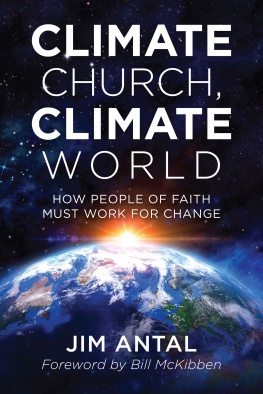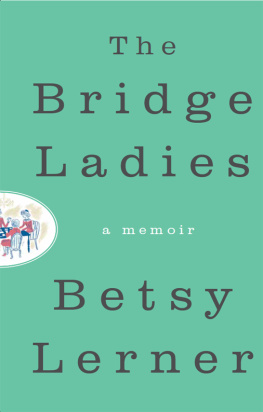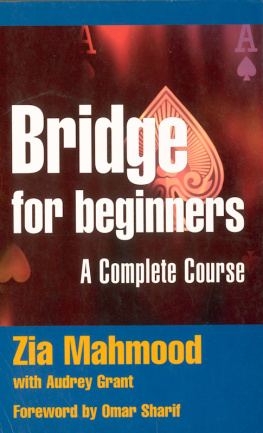THE GOLDEN
SOVEREIGN
A conclusion to Over the Bridge
BY
Richard Church

Contents
The difficulty is not only in the gaps and illusions of memorythough that is bad enoughnor does it lie in the way the lit-up theatre of childhood puts the later years into a half-light, so that we seem to have lived the rest of our lives as a mere bemused audience of our own past. The real trouble is that we find no ground under our feet when we start to write; the subject that looked familiar and ready-made turns out to be no less than the total wilderness and mystery.
V. S. PRITCHETT
Richard Church was born in London in 1893. At the age of sixteen, persuaded by his father, he took a position as a clerk in the Civil Service where he worked for the next twenty-four years. During that time he worked tirelessly on his love of all things literary, devoting early mornings, between 5 and 7, and most of his evenings to writing and reading. In 1917 this hard regime was rewarded and his first volume of poetry, The Flood of Life, and Other Poems, was published. But real success and acclaim came only in 1926 with the publication of Portrait of the Abbot.
In 1930 Richard gave up his position with the Civil Service and began a full-time writing career. He died in 1972, with over sixty books of poetry and prose to his name, having firmly established his position in English literary heritage.

Discover books by Richard Church published by Bloomsbury Reader at
www.bloomsbury.com/RichardChurch
A Stroll before Dark
Over the Bridge
The Dangerous Years
The Voyage Home
Share your reviews and comments with us via .
Chapter One
The Golden Sovereign
It was the 23rd May, 1911, an inconspicuous date, but I found it heavily emphasised because it was pay day, and I was going home to my rooms with my first full months salary as a permanent Civil Servant in my pocket: three golden sovereigns.
I was aware of a sense of security, an odd state of mind in a boy of eighteen. But I welcomed it, and recalled that I had recognised it earlier in the year on the day that I received the letter from the Civil Service Commission (signed by one J. L. le B. Hammond, a name at that time strange yet attractive to me, but later to be more familiar).
My brother Jack, a qualified school-teacher earning 100 a year, took me for a walk that day, and as we tramped over Champion Hill, past Mr. Bessemers observatory, I was given some advice about not being content with that first step on the ladder of an official career, and the wisdom of taking further examinations, toward a higher rating in the Service.
I half agreed with him, as I was to agree with so many other well-wishers who subsequently offered the same good counsel: but it was the passive half of me that agreed. The active half had been in command since before my mothers death a year ago. That active half was a conflagration which has been raging ever since, still to throw out fitful flames today, over my elderly years, and to light up my veteran mind as though it were an ivy-mantled tower in a monochrome by Victor Hugo.
That active half was the obsessed and opinionated self dedicated to poetry, convinced of a vocation that would place him among the immortals by some magical and timeless process yet to be worked out in detail and method.
I had taken the first step in the making of that schedule of the work which was to occupy my life. I was now assured of bread and butter by means of a job that would rob me only of seven hours a day and from which I should retire at the age of sixty on a pension. My brother failed to convince me, though his argument lasted from Champion Hill, through Dulwich Village, and half-way up College Road past the tollgate, that to be content to remain as an Abstractor Clerk, on a salary beginning at 45 a year and rising by annual increments of 5 to a maximum of 150, was really rather supine, even though I might contrive to disguise that fact by sitting with Shakespeare and Milton in the pantheon of English Literature.
My confidence, however, was to be shaken within the next week or two, because I failed the medical examination. Once more that ass, Brother Body, had dug in his pretty little hooves. I was given the option of appealing against the report of the local doctor, who had accused me of defective kidneys. For another week I was plunged back into the nervous fears and uncertainties which had beset me since I left school in 1908, at the age of fifteen, three years before. I wanted no reminder of the events, and the states of mind, of these three years. For two of them I had nursed my mother during the last stages of her mortal sickness. She had died in my arms. My universe had been shattered and, to my shame, I had found a new and even more enticing universe rising from the ruins of the old: to my shame, because I was horrified at what could only be lack of loyalty to the mother in, and for, whom I had lived with such passion and service.
I hastened, therefore, to clamber out of this new uncertainty. Within a week I presented myself at a consulting-room in Harley Street, where I was interviewed by a frowsty old man who began his scientific and specialised enquiry by asking, in a grumpy tone, Did they tell you what the fee would be?
No, I quavered.
Oh! I see. Whats your father?
A sorter in the Post Office.
Hum! Poor devil. Mother living?
I could not reply. Something had gripped my throat. The old man glanced at me, then looked down at the dossier quickly.
Humph! I see. Bronchial asthma? Nonsense! Nobody dies of asthma. And whats the matter with you, eh? Kidneys? Fiddlesticks! Go home and drink a glass of water once an hour. Youll grow out of it. Must have had measles some time or other. Ever remember having measles, my boy, eh? Or chicken-pox, or scarlet fever?
I had them all, in the course of my febrile years, but I thought it wise not to confess. I could see that the old curmudgeon didnt care a damn, and was openly on the side of the weak battalions. He expected no reply, and went on to the real business. My fees three guineas; but a guinea will do.
That was fortunate, because my father had foreseen that a guinea would cover the fee, and I had left home with twenty-five shillings, to include the bus fare, and a steak pudding at an eating-house after the ordeal.
I left Harley Street, once again secure in the certainty of my future, protected from the wholly unknown jungle of the competitive wage-earning world. I was so relieved that I sank into a featherbed complacency, which blinded me to the possibility that I might also be groping my way back to the nursery, and to apron strings which Death had torn from my hands a year ago.
On the 8th of April, within a day of the first anniversary of the loss of my mother, and after two years as a temporary Boy Clerk in the Civil Service, I became established and pensionable. It may be a sign of my poor physical vitality that instantly I began to look forward to the pension, as to an era of release when I should be able to give myself with even fuller abandonment to the activity for which I believed myself to be destined. Or it may be that I was born out of my time, and had entered the world with a sense of privilege, and the right of patronage, more appropriate to the eighteenth century than the early twentieth.
Treasury pay day, in 1911, was on the 23rd of the month, and that is why my first full months pay, in three golden sovereigns, was in my trouser-pocket when I got off the tram at Camberwell Green, on a glorious afternoon in May.








